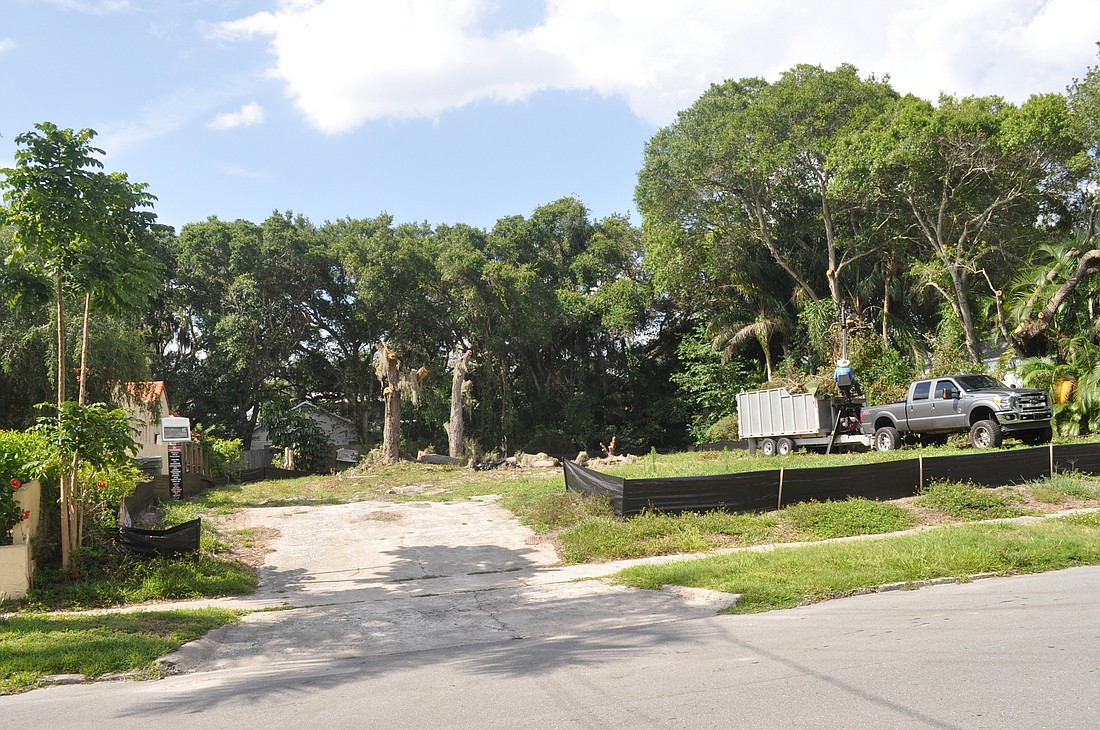- December 21, 2024
-
-
Loading

Loading

More than two years into an effort to strengthen and refine the city’s tree protection ordinance, the City Commission has settled on a new angle for attacking the problem, by voting to create a citizen-led advisory board focused on trees.
In the process, the commission has run into a new issue dividing the board: Should the Greater Sarasota Chamber of Commerce have a dedicated role in crafting the new regulations?
At an Aug. 21 commission meeting, the board voted 3-2 to adopt a committee makeup that reserves one spot for a downtown merchant or Chamber of Commerce representative. The resolution creates a seven-member board with three slots for residents and three slots for development and business representatives.
Commissioner Jen Ahearn-Koch objected to the number of development representatives — and, in particular, the potential inclusion of a Chamber of Commerce member. Citing sustained resident concern regarding the loss of trees associated with new development, Ahearn-Koch said accommodating developer needs should be a secondary concern.
“I think we need to create an advisory board that has trees and tree preservation in our city at the forefront,” Ahearn-Koch said. “Development interest, most often, is not to preserve trees — it costs money to preserve trees.”
The majority of the board, however, disagreed. The decision to create a tree advisory board came after residents and developers spoke about issues with the ordinance. Developers and planners said the regulations were too onerous. Residents said builders were removing valuable trees without mitigating the losses.
City staff and residents have said they found the voice of the development community lacking during previous revisions to the tree ordinance. Ahearn-Koch said developers would be welcome to participate in advisory board meetings even if they didn’t have a formal role.
But Mayor Shelli Freeland Eddie supported reserving spots for business representatives, arguing that developers — and the Chamber of Commerce — had valuable information to contribute to the discussions.
“I see them as one piece of the puzzle,” Freeland Eddie said. “For me, it’s not fruitful to not include them in the conversation. I have faith these individuals will take on their duties responsibly.”
In moving ahead with a tree advisory board, the majority of the commission sees an opportunity to bring together both sides of a divisive issue.
“If we don’t have a diverse group of people looking at this, and we only get one perspective, what good is having a committee get together and give us their opinion on it?” Commissioner Hagen Brody said. “We’re going to end up where we started.”